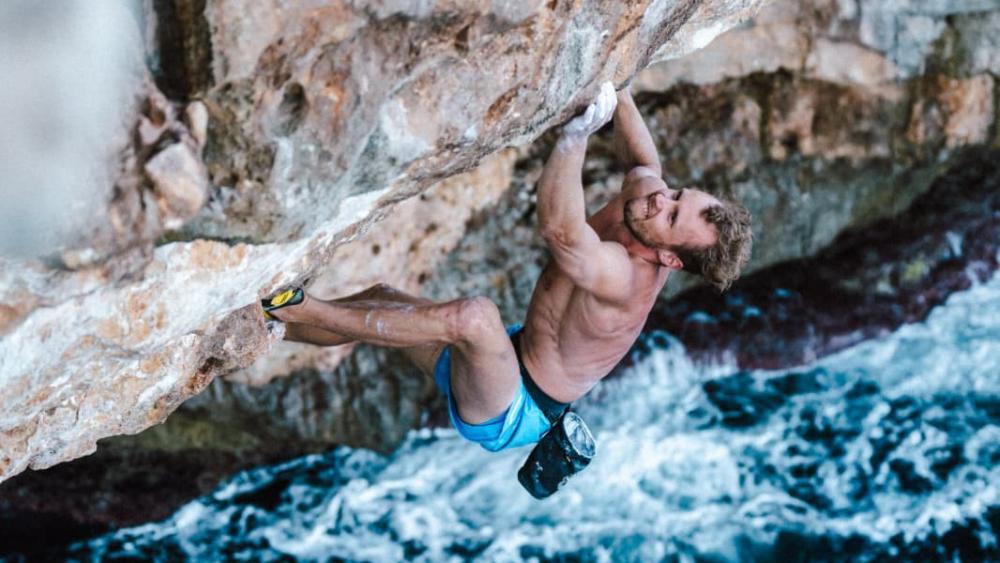
Michael Piccolruaz in an interview with SportNews. © Private
South Tyrol's sport climbing pioneer: "Now I'm planning a first ascent"
Michael Piccolruaz's name has long been synonymous with local sport climbing. The 29-year-old from St. Christina was the first South Tyrolean to climb at the Olympic Games, was a regular on the World Cup circuit for over a decade, and is now active on the Athletes' Commission, further developing his beloved sport, which he turned his back on last week. After his retirement, the Val Gardena native also has big personal plans.
01 October 2025
From:
Leo Holzknecht
Michael Piccolruaz began climbing at the age of seven. Driven by his great passion, the police athlete made it to the world elite. He achieved his first and only World Cup podium finish in 2016 while bouldering in Kazo. A year later, he won the bronze medal at the European Championships in Munich. In 2021, he made history when he qualified for the then-first Olympic climbing competition in Tokyo. Recently, his focus has increasingly shifted to rock climbing, where he plans ambitious projects in the coming years. SportNews Piccolruaz talked about his emotional last race, the changes in the sport climbing scene, his best memories and much more.
You've explained on social media that your passion for sport climbing has recently waned, while your passion for rock climbing has grown stronger. What do you see as the key difference between these two disciplines?
"The biggest difference is that with rock climbing, I only feel the pressure I put on myself. I can pace myself better, decide what I want to try and what I don't, and I'm not tied to any competition calendar or other guidelines. Plus, I have all the time in the world to solve the problem—not just three attempts, like in bouldering, or five minutes, like in lead climbing.
In rock climbing, you compete against a wall, while in sport climbing, you compete against other athletes. Does that mean that no longer having to prove yourself against others is a bit of a weight lifted from your shoulders?
"Yes, a small burden has been lifted – although it applies almost exclusively to the national competitions. You have to prevail there to even qualify for the World Cup. This step is precisely the most difficult. I missed that qualification in 2024, which was very tough. However, the joy and fun of competing in a World Cup were always there until the very end. That's why I'm sad that it's over now. I will definitely miss it."
Did the less than outstanding results play a role in your decision-making?
"Absolutely. After the Olympic Games, I competed in the World Cups in 2022 and 2023, but then, as I said, I missed the internal qualification. That was disappointing. But at the time, I wasn't thinking about quitting. I still had motivation because I knew I still had something in me. By reaching the semifinals at this year's World Cup in Innsbruck, I proved to myself that I could still do it. Overall, however, I lacked consistency. And because I didn't see a realistic chance of qualifying for the 2028 Olympic Games in Los Angeles, I decided to call it a day."
In sport climbing—and especially in bouldering—you're seeing increasingly younger athletes on the winners' lists. Do you also feel this generational shift? And how difficult is it to keep up with the times at 30?
"This trend has been evident in bouldering for years. I come from a generation that climbed differently. The style is more dynamic these days. Learning it is incredibly difficult, which is why you almost have to grow up with it to be successful. Lead climbing is a different matter entirely. There, you can certainly be at the top even at an advanced age."
“I was a bit torn.” Michael Piccolruaz about the weeks before the final competition
On Sunday, you competed in your final bouldering competition at the World Championships in Seoul. Were you able to keep your emotions in check?
"It was very emotional. The weeks of training leading up to the World Championships felt special. I wanted to stay focused and give it my all. At the same time, however, I knew that afterward, it would be over, which is why it wasn't always easy for me to give my all in training. I was a bit conflicted. Before the competition, I was more emotional than nervous. On the very last boulder, I had to pull myself together because the emotions were almost overwhelming me. My teammates gave me a good time afterward. I'm very grateful for this successful conclusion."
When you look back on your career, what moment will you never forget?
"I recently talked about this with Filip (Schenk, editor's note). Of course, the Olympic Games in Tokyo are deeply etched in my mind. But I also fondly remember a World Cup in Munich, when I was the first athlete to come out in the semifinals, immediately landed a top spot, and the whole crowd went wild. What sticks with me most, though, is the whole experience: the travel, the celebrations with teammates, making new friends."
Michael Piccolruaz at the 2021 Olympic Games.
In your early years on the World Cup circuit, sport climbing was a niche sport. Today, competitions are broadcast on TV, the discipline is an Olympic sport, and more and more young people are choosing to pursue the sport. Are you proud to have been one of those athletes who played a key role in this development?
"Absolutely. The trend in our sport is very positive – and I'm incredibly proud of that. I saw in Tokyo that I'm valued by the community as a participant in the first Olympic Games and as a member of the Athletes' Commission. Sport climbing is close to my heart, and I want us to continue to grow. It's cool where we're headed, but we're also aware that there's still a lot to improve."
What are your next projects?
"Next week I'm flying to Mallorca for deep water soloing (free climbing over deep water, editor's note). At the Es Pontas rock arch, I'll attempt a route I already climbed in 2021. Next year, I'll be heading to South Africa for an ambitious project. I'm aiming for a first ascent there."
Edit Profile
You have to sign into use the comment function.


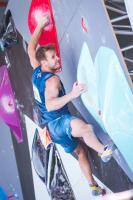
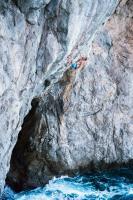
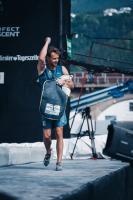
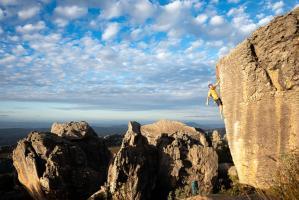
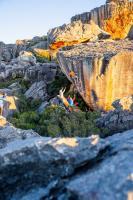
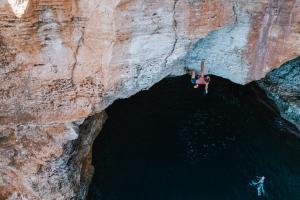
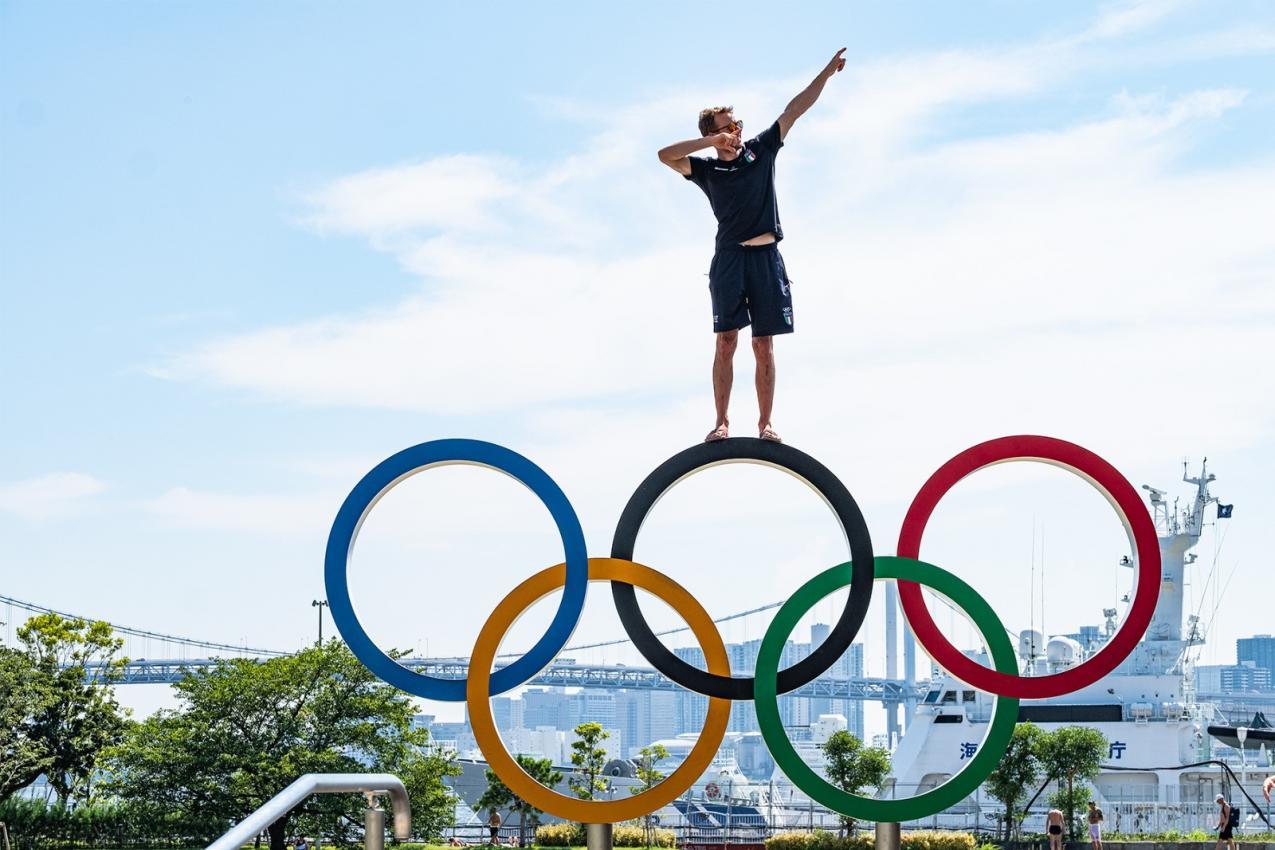




Comments (0)